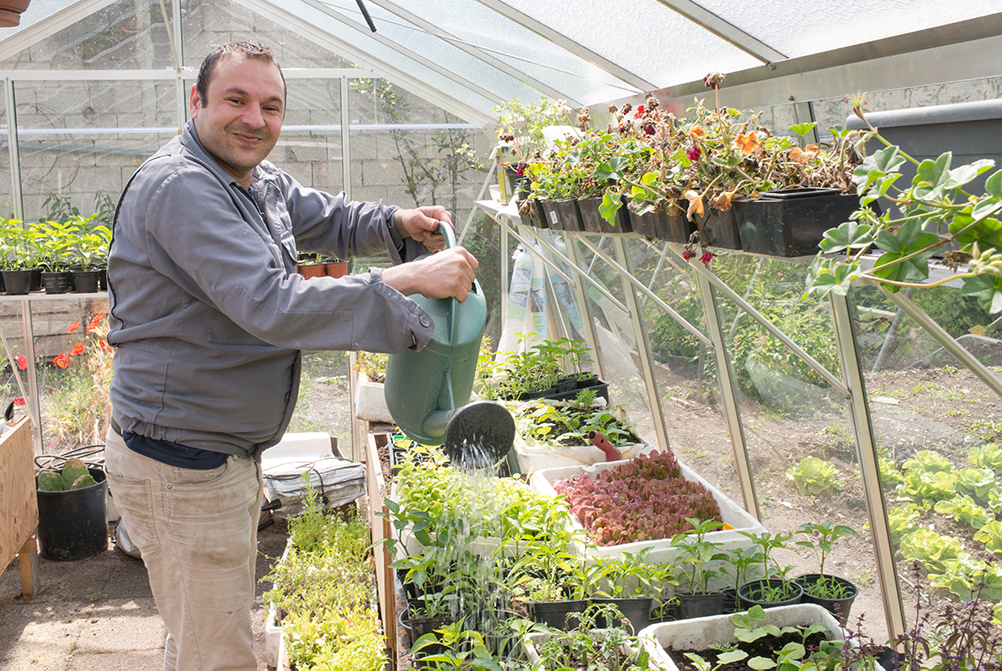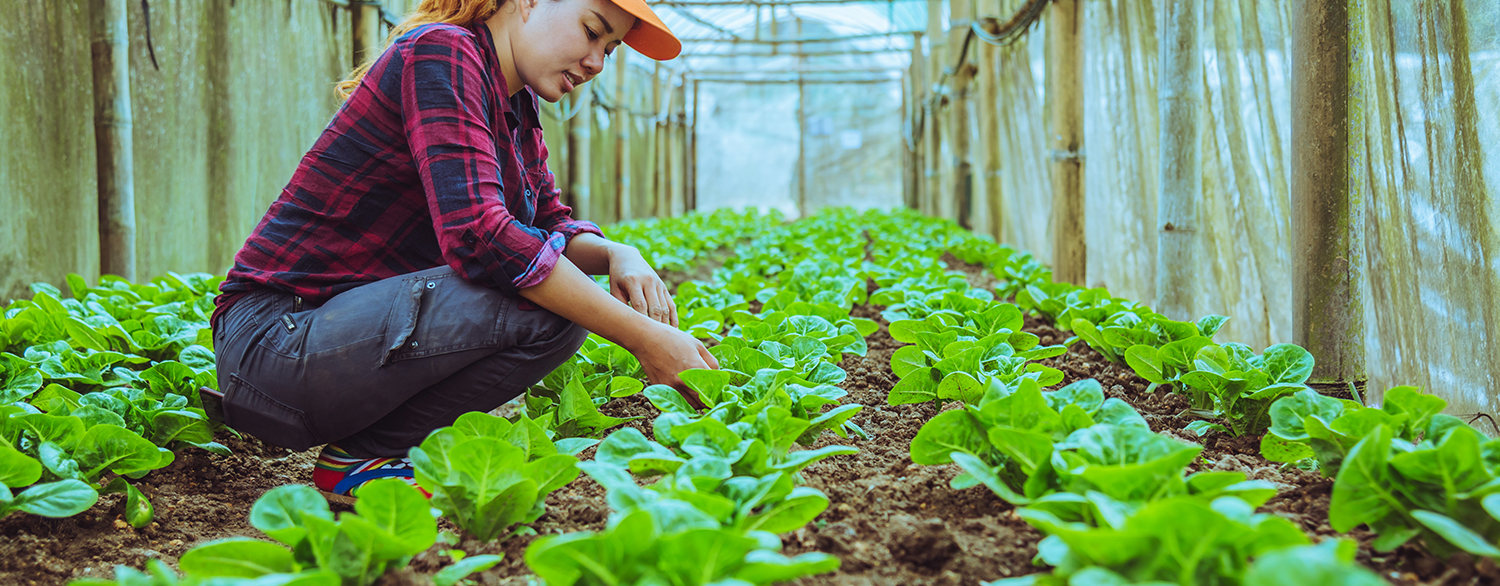We support the creation of community gardens around the world, as we are convinced that these local cultures of proximity and self-subsistence constitute a food and economic alternative for families most in need.
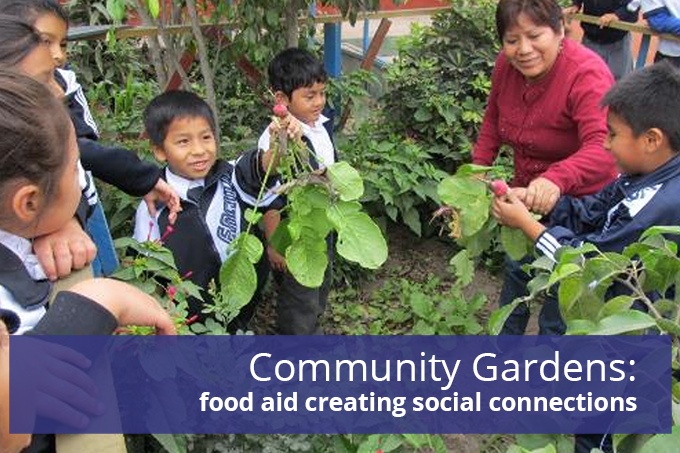
The consumption of fresh fruits and grown in these gardens also contributes to the health of those we help, all too often familiar with unhealthy and banal foods.
Community gardens, whether communal, collective, shared, rural or urban, are gaining in popularity: including in industrialized countries. They represent a food alternative and create a local community for the families most in need. When the gardens are ecological or permaculture, they have another asset, enabling the learning of responsible growing and healthy eating.
Stop Hunger supports community gardens in Bolivia, Brazil, Cambodia, China, the United States, India, Madagascar and Romania.
- In Brazil, « Horta na laje » (Rooftop vegetable gardens) is a program launched in 2017 in Paraisópolis, one of São Paulo’s largest and poorest “favelas.” Among the 100,000 inhabitants, nearly 30% of mothers leave their job when their children are born. Less income means more poverty and hunger, adding to the risks of marginalization and major insecurity. Co-created with the Paraisópolis Women’s Association, Horta na laje gives training and tools to the mothers of families to cultivate small organic gardens together, to provide their families with healthy food as well as their public educational restaurant, and to have an income by selling a part of their crop.
Due to the success of this program, we launched a similar project with Centro Social Carisma. It trains women in communities in need in hydroponics: a technique of gardening above-ground using a mixture of water and nutrients. The objective is to grow vegetables to improve nutrition and to sell the surplus to increase the family salary. 3,300 people were trained thanks to these two programs, of which over 80% were women.
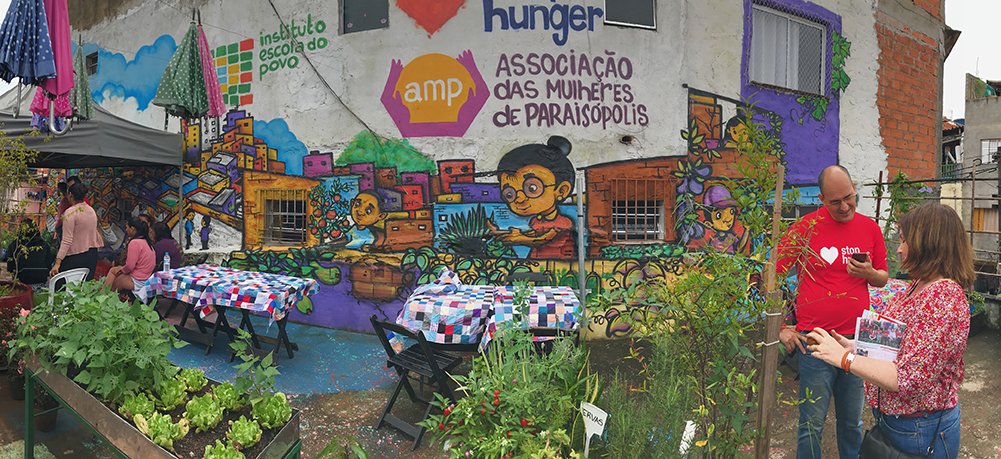
- In Cambodia, in its pilot school Happy Chandara near Phnom-Penh, Toutes à l’école educates, feeds and cares for 1,500 girls, aged six years and up, who are among those most in need. As a partner over the past four years, we helped Toutes à l’école create permaculture gardens and a network of eco-responsible family farmers. The goal is to increase fresh produce in school catering on campus. In 2020, our donation helped purchase a plot of land to implement a model farm with eco-responsible activities. There are future plans for the school to host a training center and create a certified organic label.
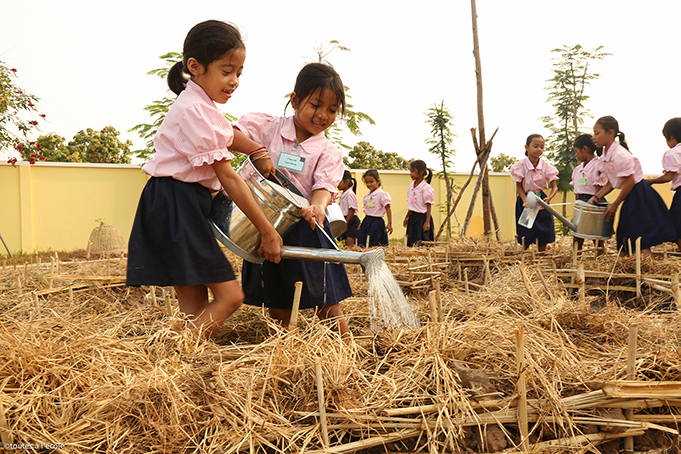
- In Ladakh, at 3,500 m altitude and temperatures of - 25°C in the Himalayas, fruits and vegetables do not grow. Composed only of rice and cereals, the meals of school children are meager and not very nutritious. This is why we have contributed to feeding over a thousand students aged 4 to 18 in eight boarding schools in the far north of India. We financed this program of the GoodPlanet Foundation, chaired by Yann Arthus-Bertrand, to support LEHO and HOKA, two local NGOs. After installing bioclimatic solar greenhouses with these organizations, we also shared good practices on food safety, and the conservation and preparation of fresh vegetables, to preserve their nutritional qualities and guarantee more than 1,000 students a healthy and balanced diet throughout the year.
.jpg)
- In France, we financed Restos du Coeur’s experimental project of an urban community vegetable garden, where a dozen people, who had previously been in a precarious situation, were taught how to garden and harvest vegetables. The fresh and naturally grown products are then distributed daily to others in need, helping to improve their nutrition. In one year, the kitchen garden of Montreuil and its employees reintegrating into society produced nearly three tons of vegetables.
